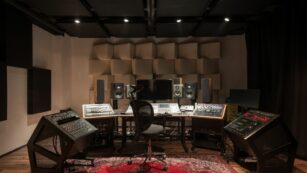In the ever-evolving landscape of the music industry, remote work has become more than just a trend. It’s reshaping how the industry operates, providing a myriad of opportunities for those with a passion for music to carve out a career from the comfort of their own homes.
Music Industry Jobs Remote
The Rise of Remote Work in Music
Remote work patterns in the music industry are experiencing a significant surge. Technology advancements, specifically in communication, digital platforms and productivity tools, enable seamless workflows across borders, making it possible for this industry to thrive remotely. Employees in the music sector appreciate the flexibility associated with remote work, considering it advantageous both personally and professionally. Roles like music production, engineering, songwriting, and marketing have transitioned well to the digital workspace, contributing to the rise of remote work in the music industry. For instance, recording engineers often work remotely, uploading and downloading files as needed, while songwriters collaborate over video calls.
Key Areas With Remote Opportunities
 Remote opportunities in the music industry abound in various fields. Music production stands as a major player, offering posts such as remote sound engineers, producers, and mixers. Music education also pays dividends through remote opportunities like online music tutor roles. Marketing, too, introduces numerous remote positions, from social media managers promoting musicians or festivals, to music marketers creating successful campaign strategies for albums and singles. Additionally, roles like talent scouting, artist management, and music industry consultation can operationalize effectively in a decentralized manner, adding to the list of remote opportunities. Particular mention goes to music journalism jobs as these can typically function remotely, bringing exclusive interviews, news on the latest releases, and insider knowledge to audiences worldwide.
Remote opportunities in the music industry abound in various fields. Music production stands as a major player, offering posts such as remote sound engineers, producers, and mixers. Music education also pays dividends through remote opportunities like online music tutor roles. Marketing, too, introduces numerous remote positions, from social media managers promoting musicians or festivals, to music marketers creating successful campaign strategies for albums and singles. Additionally, roles like talent scouting, artist management, and music industry consultation can operationalize effectively in a decentralized manner, adding to the list of remote opportunities. Particular mention goes to music journalism jobs as these can typically function remotely, bringing exclusive interviews, news on the latest releases, and insider knowledge to audiences worldwide.
Benefits of Remote Work in Music
Harnessing the power of technology, remote work in the music industry offers numerous benefits. Flexibility reigns top, conferring professionals the freedom to structure their day, balance personal commitments, and create an environment conducive to creativity. Numerous studies indicate a correlation between flexibility and higher productivity, critical in the fast-paced realm of music. Enhanced work-life balance, promoted through remote work, results in lower stress levels and increased overall wellbeing.
 Remote work also democratizes the music industry. It eliminates geographical barriers, providing access to global opportunities for music professionals regardless of location. As a result, the music industry sees an influx of diverse talent, enriching the music sphere with varied perspectives, styles, and genres.
Remote work also democratizes the music industry. It eliminates geographical barriers, providing access to global opportunities for music professionals regardless of location. As a result, the music industry sees an influx of diverse talent, enriching the music sphere with varied perspectives, styles, and genres.
Cost reduction forms another significant advantage. Companies save on operational expenses—rent, utilities, infrastructure—and can reinvest these funds into developmental pursuits. Employees, the lifeblood of the music industry, also benefit from the elimination of commuting costs and times, a reduction in meal and clothing expenditures, and an overall increase in disposable income.
In the digital realm, increased collaboration is an unanticipated yet substantial boon. Remote work leverages digital platforms for seamless networking, fostering connections, and collaborations across geographical boundaries. As the saying goes, music knows no boundaries, and remote work aligns perfectly with this ethos..
Popular Remote Roles in the Music Industry
Embracing the trend of remote work, the music industry offers various decentralized positions. These roles provide flexibility, personal growth, and a winning work-life balance. Such jobs span across multiple sectors, from music production to marketing.
- Music Producer: Remote music producers create and arrange tracks using digital software. They optimally blend distinct sound elements, making their role critical in shaping the tone and quality of a musical piece from their home studios.
 Journalist: Working remotely, music journalists report, critique, and analyze various genres of music. They write features, and news stories about artists, album releases, concerts, and music industry trends.
Journalist: Working remotely, music journalists report, critique, and analyze various genres of music. They write features, and news stories about artists, album releases, concerts, and music industry trends.- Sound Engineer: Sound engineers often operate from home studios, handling the acoustic aspects of recordings to ensure high-quality production. They manage sound during recording, mixing, and reproduction.
- Music Marketing Specialist: Remote music marketing specialists strategize promotional efforts for artists and their music. They employ social media, email newsletters, and other digital platforms to reach a wide audience.
- Songwriter: Writing from anywhere, songwriters craft lyrics, create melodies, and often work with artists and producers for a song’s complete development.



